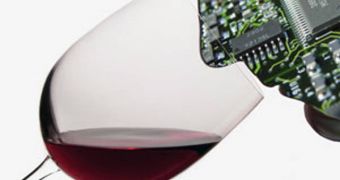As any bomb squad technician will tell you, the reason why sometimes even the best dogs and equipments cannot detect a bomb is the fact that the explosive device leaves only trace amounts of smell molecules in the air that are too faint for conventional detection methods to pinpoint. But researchers at the Tel Aviv University (TAU) believe they may have invented a solution to this problem, in the form of a molecule capable of detecting faint smells and amplifying them for humans to analyze.
Basically, the molecule, dubbed the bionic nose, is able to detect, lock on and amplify the signal coming from various targets, such as impurities in water, chemicals in bombs, or biomarkers in cancer. The amplified samples become easily noticeable for experts, who are then able to say for sure if something is wrong in a particular situation or not. The molecule is also capable of detecting very tiny traces of each of the trigger it's responsive to, which will make it invaluable for doctors and crime fighters in the future.
Behind the new “device” is TAU's Raymond and Beverly Sackler School of Chemistry expert professor Doron Shabat. Details of his invention are published in a 2008 edition of the scientific journal Chemical Communication. Shabat shares that his molecule is able to amplify markers at strengths millions to billions of times greater than they are when discovered, a trait that will most likely come in handy when, for example, time is running out for a bomb squad.
“We are developing a molecular system that amplifies certain events. That way we'll be able to respond faster to medical, security and environmental threats. In effect, our device can amplify just about any chemical system that has a certain kind of reactivity. It has the potential to help doctors diagnose diseases – those with biomarkers, and enzymatic activities that are compatible with our molecular probe. The long list includes a few kinds of cancer, as well, including prostate cancer. But it also has applications for testing for impurities in water. It has both biological and non-biological applications,” Shabat adds.

 14 DAY TRIAL //
14 DAY TRIAL //